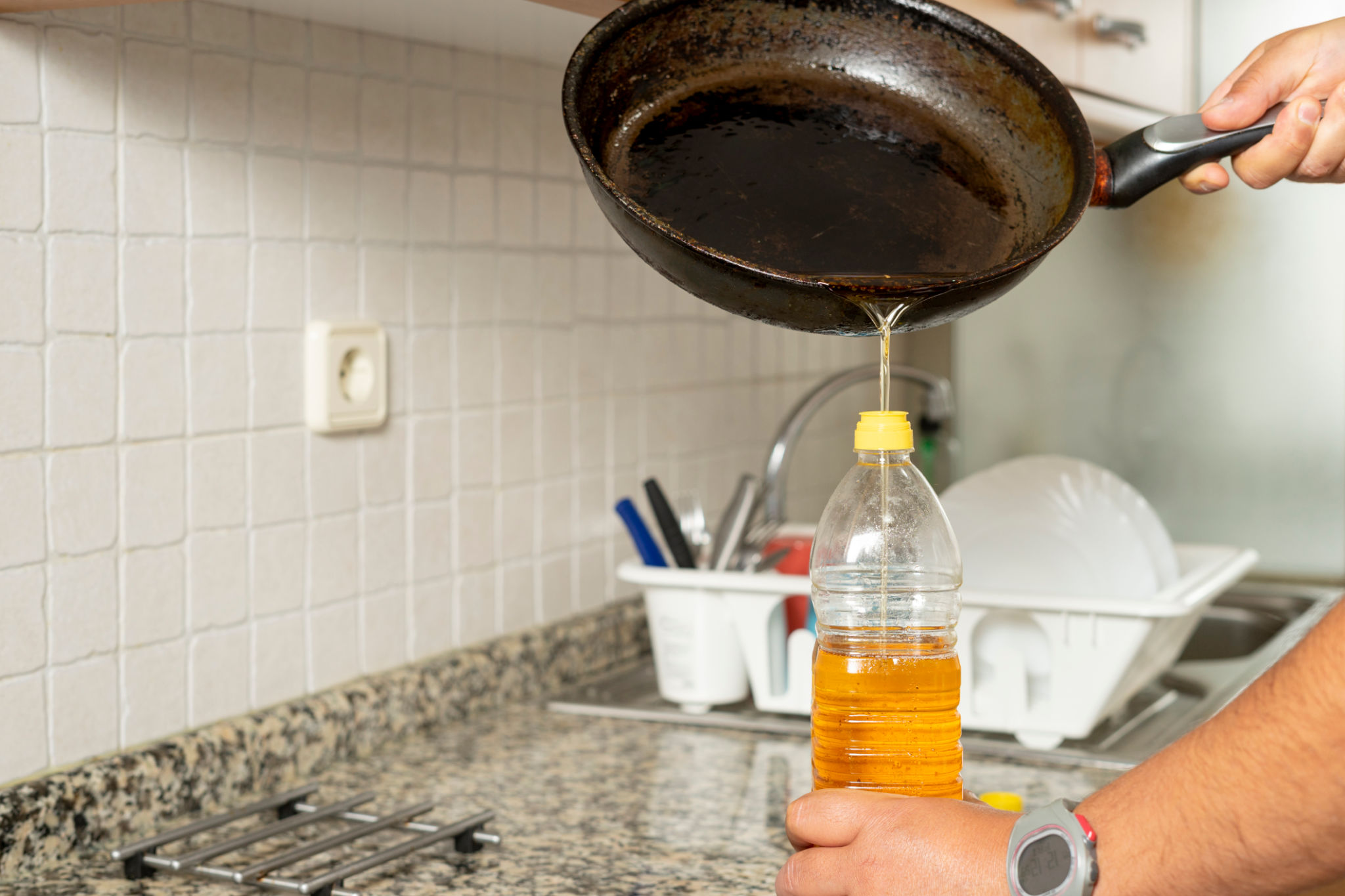Expert Advice: Best Practices for Cooking Oil Disposal
Understanding the Importance of Proper Cooking Oil Disposal
Cooking oil is a staple in kitchens around the world, but once it has served its purpose, many are left wondering how to dispose of it responsibly. Improper disposal can lead to environmental issues, plumbing problems, and even health hazards. Therefore, understanding the best practices for cooking oil disposal is essential for both homes and businesses.

Why You Shouldn't Pour Oil Down the Drain
One of the most common mistakes people make is pouring used cooking oil down the sink or toilet. This practice can lead to clogged pipes and plumbing disasters. Over time, oil solidifies and combines with other debris, creating blockages. Moreover, these blockages can lead to expensive repairs and sanitation issues.
Beyond personal plumbing problems, pouring oil down the drain contributes to larger environmental concerns. It can cause sewage overflows and contaminate water systems, harming aquatic life and ecosystems. As such, it's crucial to find alternative methods for disposing of cooking oil.
Safe Methods for Cooking Oil Disposal
There are several safe methods for disposing of cooking oil that don't involve pouring it down the drain. Here are some recommendations:
- Let It Solidify: Allow the oil to cool and solidify at room temperature. Once solid, you can scoop it into a container and dispose of it with your regular trash.
- Use a Sealable Container: Pour the cooled oil into a sealable container and throw it away with your household waste. Ensure the container is tightly sealed to prevent leaks.

Recycling Cooking Oil
Another environmentally friendly option is recycling your used cooking oil. Many communities offer recycling programs specifically for cooking oil. These programs typically convert the oil into biodiesel, a renewable energy source. Check with your local waste management authority to see if such programs are available in your area.
If your community doesn't offer a recycling program, consider commercial recycling services. Many companies will collect used cooking oil from businesses and even some households, turning it into valuable resources.
Reusing Cooking Oil
If you've only used the oil once or twice and it's relatively clean, you might be able to reuse it. Strain the oil through a fine mesh or cheesecloth to remove food particles, then store it in a clean, dry bottle. Be sure to label the bottle with the date and type of oil for future reference.

Community Initiatives and Education
An increasing number of communities are recognizing the importance of educating residents about proper cooking oil disposal. Workshops, informational pamphlets, and community events can help spread awareness and encourage responsible practices. Getting involved in such initiatives can help reduce the environmental impact of improper disposal.
By adopting these best practices and sharing them with others, we can all contribute to a healthier environment and safer communities. Proper cooking oil disposal is a small step that makes a big difference.